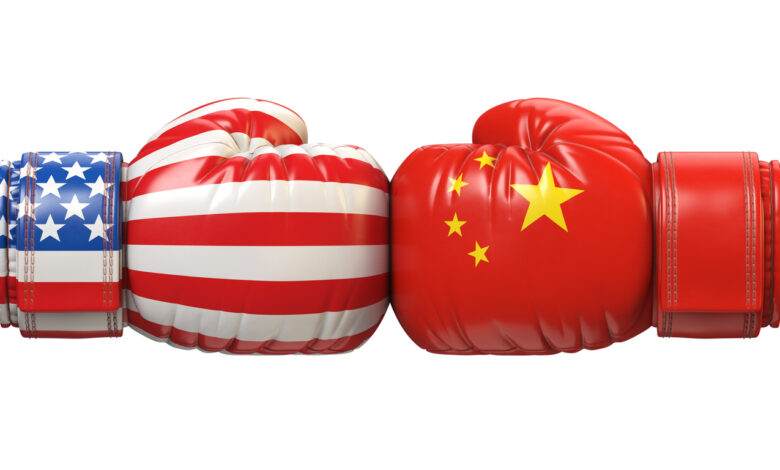Don’t Wait For China to Invade Taiwan to Act

Last week the unthinkable happened. Russia, without provocation, invaded the sovereign state of Ukraine. In response, the United States and others moved beyond what was previously believed to be possible, sanctioning a significant portion of the Russian economy and many of its oligarchs. Unfortunately, Putin’s interest in reconstituting the Soviet Union or the Warsaw Pact is not the only Damoclean sword hanging over the global community. China’s intent to take over Taiwan continues to loom as an ever-present danger. We can’t afford to wait for an invasion of Taiwan to act.
It is important not to draw these parallels too closely. As Kharis Templeman points out in a recent piece for War on the Rocks, there are significant differences between the two states economically and politically. Indeed even China has said they are not the same (but for much more self-serving reasons.) However, China has been ramping up their pressure on the island of late. In January, China’s Air Force flew 39 planes into Taiwan’s airspace – the most ever since October of 2021 which had set the previous record. We need to start to think through what lessons we can take from the war in Ukraine. These could ultimately be applicable to either detering China from invading Taiwan or responding after it happens.
One thing that has had a major impact on Russia has been coordinated economic sanctions. The U.S., Canada, the European Union, Japan, South Korea, and others have placed restrictions on Russia causing the Ruble to tumble and the Russian stock market to free-fall. However, one area that has not been sanctioned is Russian energy exports. That’s because Europe is heavily dependent on Russia for its energy needs and energy prices impact inflation which has been on the rise around the globe. Unfortunately, the world is reliant on China for many more of its goods. China is the top trading partner of over 40 countries and the EU. Additionally, unlike Russia, whose economy is primarily based on extractive industries and weapon sales, China is positioning itself to be the leader on a variety of next generation technologies. One needs to only look at the difficulty that the United States has had in convincing our closest allies into giving up Huawei and ZTE telecommunications equipment to see how difficult it may be to convince allies to give up cheap and readily available technology that powers our everyday lives.
Sanctions are much easier said than done, however. The U.S. Department of Justice has launched a new KleptoCapture task force to prevent sanctioned individuals and entities from skirting the rules. Other countries, like the United Kingdom, have been unable to keep up claiming capacity problems. In addition, we have seen Russian oligarchs moving assets to places where it is difficult or impossible to retrieve them. Mega-yachts have been docked in the Maldives and Rubles have been converted to Bitcoin. Carrying out sanctions on Russian companies and people will be a cakewalk compared to China as Chinese companies form integral parts of supply chains and China has over 5.3 million millionaires.
Following the invasion, the United State and the European Union agreed to kick a number of Russian banks out of SWIFT, an international cooperative that helps execute international financial transactions. China also has some strengths here too that Russia does not. China’s currency, the Yuan, is the fourth most used currency in the world and they are moving quickly to launch a digital currency which could form the basis of a new trading system. Digital currencies would also potentially obviate SWIFT, reducing the efficacy of those sanctions not just against China but against other actors as well.
Just as with economic sanctions, on the military side, holding alliances together is important. In Europe we have seen NATO come together in a way that few expected. Even countries like Hungary and Turkey (who we could classify as “Putin curious”) have largely been doing the right things. The U.S. does not have the same strong alliances in the Indo-Pacific. The newest partnership group “The Quad” consisting of the U.S., Japan, Australia, and India is a good start but it currently is not close to becoming a military alliance of any sort. It also leaves out South Korea and the Philippines, both of which are treaty allies of the United States. Even if these countries were to join together into a military alliance, none of them, including the United States, have a hard agreement to defend Taiwan. In fact, most of these states actually do not even recognize Taiwan as being a separate country from the People’s Republic of China. If the U.S. actually does move to defend Taiwan in the event of an invasion, it may be doing so alone.
The United States cannot afford to wait to deter China and put the pieces into place to sanction them as necessary. President Biden is making positive steps on this front. Last week, he sent former senior defense officials to Taiwan to reassure them of our support and held a meeting of The Quad which continued to trumpet the importance of the partnership and sovereignty in the Indo-Pacific region. The President has also talked about the importance of reshoring and ally-shoring supply chains so that they are more resilient to disruptions. They have also released an impressive Indo-Pacific strategy that promotes a positive approach to the region rather than one solely focused on countering China. Finally, in the fall, the Biden Administration approved a sale of approximately $750 million dollars worth of arms to Taiwan. However, we must move faster.
The America Competes Act remains stalled in Congress and should be passed expeditiously. As President Biden noted in his State of the Union address, this act is vital to invest in the technologies of the future which will help us compete against China and move the supply chains of strategically important sectors out of the PRC. In addition, the Senate needs to move to swiftly confirm Biden’s ambassadors to India, South Korea, Australia, and the Philippines so that they can work to solidify and strengthen our bilateral and multilateral relationships in the region. Finally, the United States should invest now in strengthening the Department of Justice and Department of Treasury to improve capacity around creating and enforcing sanctions against bad actors.
As with the war in Ukraine, the conflict will seem unthinkable until it begins to happen. America’s One-China policy is meant to provide strategic ambiguity but, as Russia has, the PRC can call our bluff at any point and it seems unlikely that the United States would want to get into a shooting war with another nuclear state over Taiwan. If Taiwan is invaded in the next five years, we are not on track to have sufficient ally support nor sanction enforcement capacity to effectively push back against China.
However, the need to prepare economically, diplomatically, and militarily for conflict with China extends far beyond Taiwan. China is a malign actor in the world. They are currently committing a genocide of Uyghurs with tactics including forced sterilization and forced labor. They have broken the Sino-British Joint Declaration which was meant to ensure democracy remained and flourished in Hong Kong. Instead, they have cracked down brutally and all semblance of a “one country-two systems” is dead. This week, we found out in a blockbuster New York Times report that China not only knew about Russia’s desire to invade Ukraine but actively told Russia that they would not stand in their way. In fact, they have opened their economy to Russian wheat in order to alleviate pressure on Russia’s economy. We cannot wait for the next shoe to drop with China, we have to act quickly to prepare ourselves economically, diplomatically, and militarily to sanction China for its current malevolence and deter it from future crimes.

